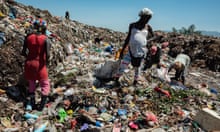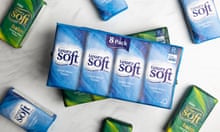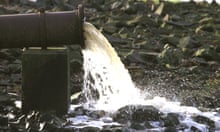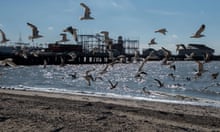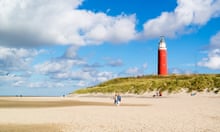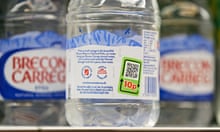A search of hundreds of beaches across the UK has found almost three-quarters of them are littered with tiny plastic pellets.
The lentil-size pellets known as “nurdles” are used as a raw material by industry to make new plastic products.
But searches of 279 shorelines from Shetland to Scilly revealed that 205 (73%) contained pellets.
The largest number recorded in the Great Winter Nurdle Hunt weekend in early February were found at Widemouth Bay in Cornwall, where 33 volunteers from the Widemouth Task Force collected about 127,500 pellets on a 100-metre stretch of beach.
Thousands of the tiny pellets were spotted by volunteers over a short period in locations from Porth Neigwl in Wales to the shoreline in front of the dunes at Seaton Carew near Hartlepool, County Durham, and after stormy conditions on the Isle of Wight.
More than 600 volunteers took part in the hunt organised by Fidra, the Scottish environmental charity, in collaboration with the Environmental Investigation Agency, Fauna and Flora International, Greenpeace, the Marine Conservation Society and Surfers Against Sewage.
The lightweight nurdles can escape into the environment at various points during their manufacture, transport or use, spilling into rivers and oceans or getting into drains where they are washed out to sea. It is thought that billions are lost in the UK each year.
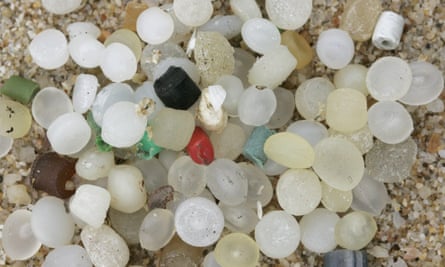
Nurdles are one of the main sources of primary microplastics – small pieces of plastic that have not come from larger items broken down into little bits – in European seas and can cause damage to wildlife.
Experts say they soak up chemical pollutants from their surroundings and then release the toxins into the animals, such as birds and fish, that eat them.
Results from the hunt will be fed into the government’s consultation on microplastics, which is looking at ways of tackling the problem.
Madeleine Berg, projects officer at Fidra, said she was delighted so many nurdle hunters braved the winter weather to take part.
“The information we’ve gathered will be vital to show the government that pellets are found on beaches all around the UK and, importantly, that so many people care about the issue.
“Simple precautionary measures can help spillages and ensure nurdles do not end up in our environment. We are asking the government to ensure best practice is in place along the full plastic supply chain, and any further nurdle pollution is stopped.”
Fidra has been working with the UK plastics industry since 2012 to promote best practice to end further pellet pollution.

